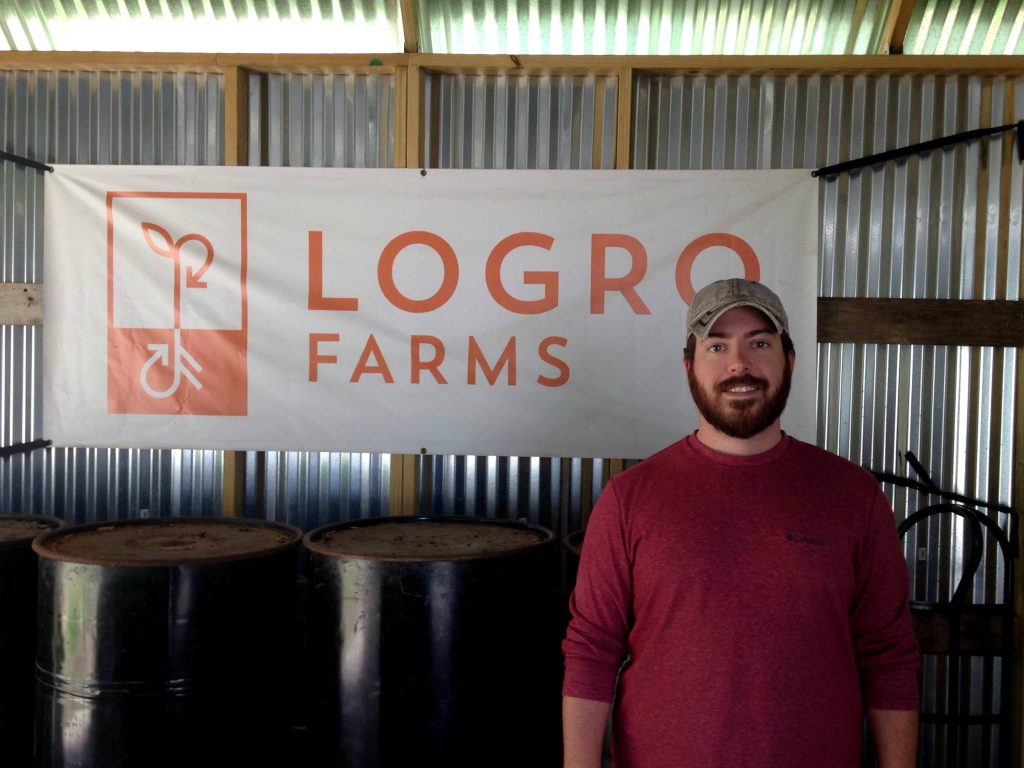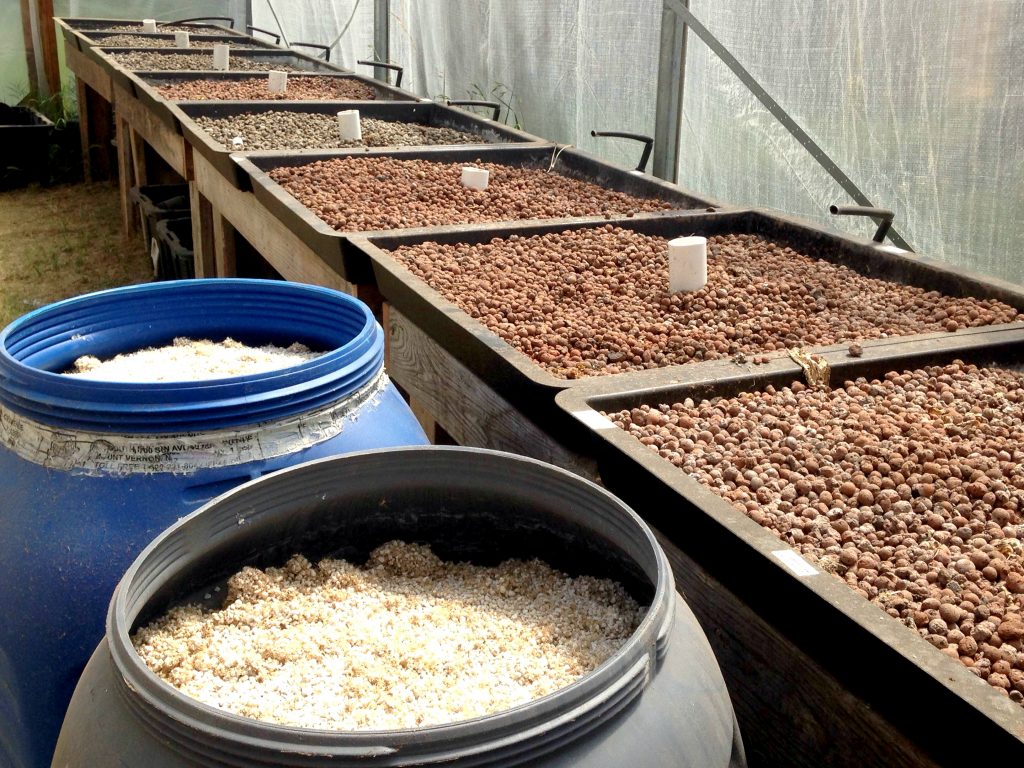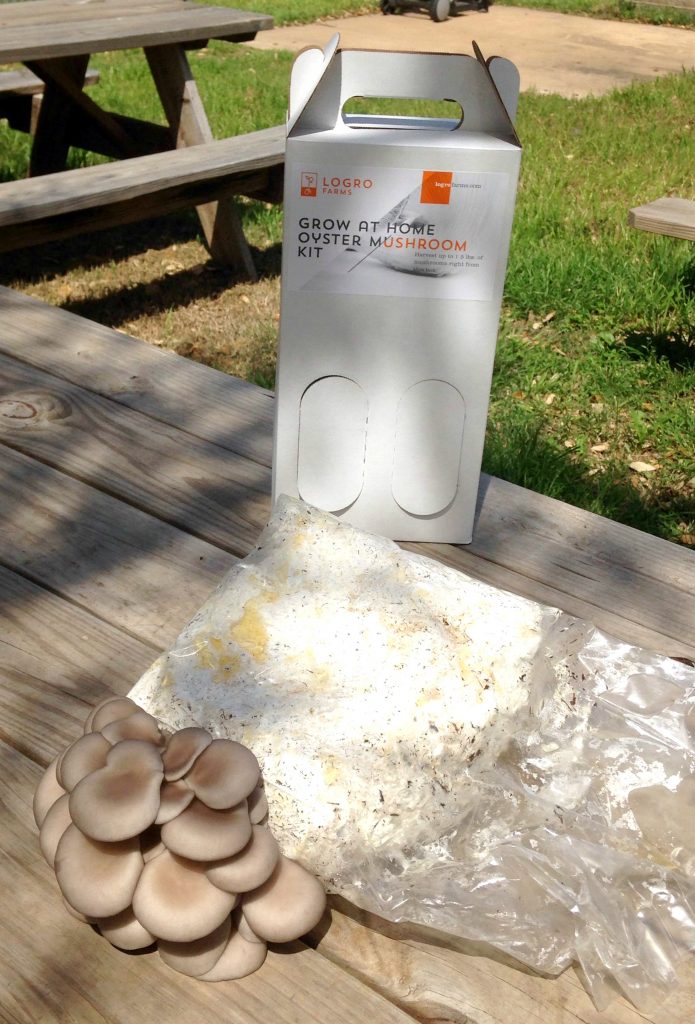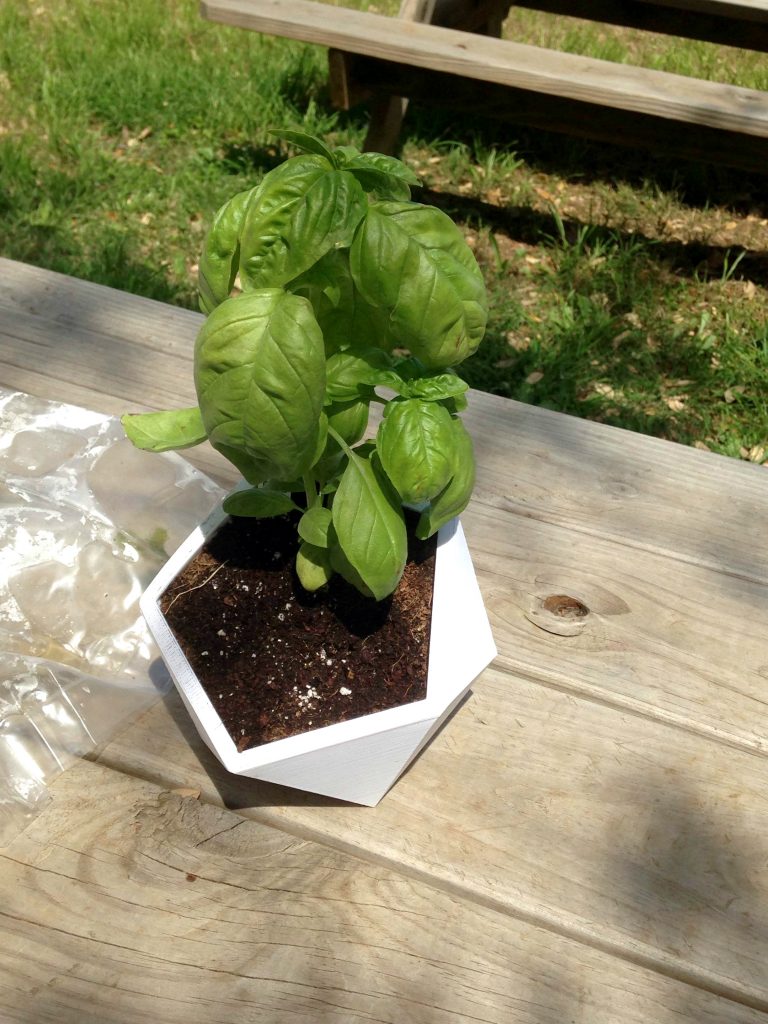
Ryan Sansbury, co-founder of Austin’s Logro Farms
What Austin resident hasn’t heard of Jester King Brewery and Stanley’s Farmhouse Pizza? Adjacent to these local favorites is a relatively new sustainable farm you may not have heard of, but don’t doubt that Logro Farms has been gaining massive traction over the past three years.
Two friends from Houston, Ryan Sansbury and Jeremy Bastian, conceived the idea of a sustainable, full-cycle farm in Austin. After trying their hand at brewing kombucha and beer, and then making cheese, gourmet oyster mushrooms proved to be the ultimate choice. With oyster mushrooms, the duo could create a quality, healthy product while enabling its accessibility to the public through home-growing kits.
In 2013, with an outpouring of support from the Austin community through a Kickstarter campaign, Logro Farms came to fruition. “Our mission is all about low-waste local farming. We sell our products to local Austin and Central Texas restaurants, and we ship our kits all across the world. We can do fresh for local, and we can also do grow-at-home for everybody,” said Sansbury.
Logro Farms Specializes in Oyster Mushrooms
Gourmet oyster mushrooms are a valued commodity due to their creamy, velvety flavor profile, as well as their multiple nutritional benefits. Logro Farms sells its harvested mushrooms to a variety of local restaurants and farmers’ markets, including their neighbor, Stanley’s Farmhouse Pizza.
However, as a decomposer, these mushrooms have the potential to make a significant impact on community waste input and output. “The basic gist of it is that we’re just modeling our business off of natural systems. In nature, when a tree falls, mycelium bacteria eats it up and breaks it down into soil. So we looked at that process and decided to make a business based around that idea, conscientiously using agricultural waste,” Sansbury shared.
Although many materials and/or byproducts can be utilized in the process, Logro Farms uses brewer’s grains from Jester King Brewery, coffee grounds, and sawdust from furniture and guitar manufacturers. In the past three years, the business has embodied full-cycle farming by redirecting 10 tons of agricultural waste from landfills, reusing these materials to grow food locally and beyond.
From Raw Materials to Harvested Mushrooms

Trays in the greenhouse are ready for spring weather
The entire process is relatively simple. In a lab, sawdust is sterilized within pressure cookers in order to kill microbes, and thereby prevent unwanted bacteria and mold from affecting the bag. A pure mycelium culture is then cut into pieces and added into the bag of compost manually. Within two to three weeks, the compost bag of sawdust will be fully colonized and appear white, producing spawn.
The next phase is to pasteurize sawdust separately and cool it overnight in large barrels to heat-treat the material on a larger scale. A lifter system the owners devised rinses and lowers each basket. Afterward, the fully-cultured spawn is broken into little pieces and mixed with the pasteurized material, which colonizes again for another two to three weeks. This is called inoculation.
Once that mixture is fully colonized after incubation, they cut open the bag and the growing mushrooms are visible. After two weeks, the mushrooms are harvested.
Typically, the entire process of beginning from raw materials to harvested mushrooms takes four to six weeks, but it can be expedited depending on how much of the spawn is added to the substrate during the inoculation phase. Within the small oyster mushroom kit, customers receive all materials necessary to cultivate about 1.5 pounds of mushrooms within two weeks–no barrels necessary.
More Than Mushrooms: Microgreens and Wheatgrass Kits

Logro Farms’ grow-at-home oyster mushroom kit
Not only does Logro Farms produce oyster mushrooms, but the farm also produces a variety of mushrooms and greens. Stanley’s Farmhouse Pizza utilizes their greens, such as basil and cherry tomatoes, making each pie even more delectable and fresh.
The main kit products are oyster mushrooms, followed by microgreens and wheatgrass kits. The microgreens kit consists of broccoli, radishes and alfalfa mixed together, and both kits are packaged with a tray, grow mat, seeds and simple instructions. You can grow two full rounds of each product and then keep the tray to grow other things. For five to 10 dollars, you can easily order a replacement pack.
Promoting Sustainable Farming
A central focus for Sansbury and Bastian has been educating the public about sustainable farming and growing organic food. By providing tours, partnering with local organizations, donating kits to schools and nonprofits, and selling their produce at sustainable farmers’ markets, they hope to increase awareness about alternative farming methods that will drive positive change.
They frequently give lectures to organizations such as Austin Organic Garden Association and have partnered with UT’s Sustainability Corps, Sustainable Food Center Farmers Markets, Texas Campaign for the Environment and others. “I give educational tours every weekend, so if someone wants to learn about it, I’m happy to talk about it because this is what we love doing. We believe in making those connections. It’s always mutually beneficial.” Lectures cover hydroponics, harvesting fungi, aquaponics and other aspects of sustainable farming, with hands-on activities that showcase their products.
Logro Farms’ blog highlights recipes, the benefits of these products and sustainable farming.
Design Your Own 3D Planter

Custom 3D planter, part of Logro Farms’ current Kickstarter project
Logro Farms is expanding operations. Recently, they launched another Kickstarter campaign to promote their newest product: custom 3D printed planters. Using a small tabletop printer, multiple prototype designs have been developed, enabling customers to completely personalize their own planters, which are also compostable because of the beer grains used to produce them.
There is a wide variety of options available, such as hanging planters, special sets that include a chess board (my favorite), an educational pack, jumbo-sized planters and portable planters you can wear as accessories. The campaign is running until April 22 with a goal of $12,000 to allow Logro Farms to purchase a large, commercial 3D printer. This printer will enable them to design countless planters for customers and stakeholders, so head over to their Kickstarter page to design your own custom planter. Estimated delivery of orders is July 2016.
For more information on Logro Farms and to order kits, visit their website for links to their shop, blog and social media outlets. Tours are available by appointment on the weekends, and Logro Farms welcomes volunteers.
Logro Farms is located at 13005 Fitzhugh Road. You’ll turn left off Fitzhugh Road onto a dirt road at the white Ceres Park Ranch sign.
@lainey_bird_ wants to know:
Which edible plants do you grow at home?

Leave a Reply